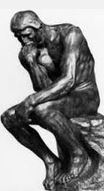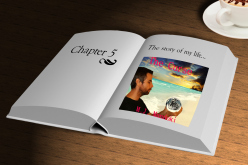M.J. Mandoki's Blog, page 12
September 12, 2015
Philosophical Fiction?
What is philosophical fiction? Since I have a background in philosophy and my books can be considered philosophical fictions, I get this question asked frequently. Basically, a work of philosophical fiction explores questions and issues that are normally asked by philosophers. Some works that can be classified as philosophical fictions are Voltaire’s Candide (1759), Henry James’ Turn of the Screw (1898), Ayn Rand’s Anthem (1938), Jean-Paul Sartre’s No Exit (1944), Samuel Beckett’s While Waiting for Godot (1953) and, my personal favorite, Jorge Luis Borges’ Labyrinths (1962). These fictional works are as interesting as deeply philosophical. Certainly, none of them are boring. They usually have well-developed characters and many of them have built-in humour. Although background in philosophy helps to appreciate the message they are trying to get across, understanding them does not require a university degree in the subject.
James Ryerson points out in his article, The Philosophical Novel, that some philosophers and novelists feel that philosophy and novels are not a good mix. Philosophers are often thought to be analytic thinkers with step-by-step rational argumentations and scientific-like approach to subjects that do not seem to be well-suited for fiction writing. However, I believe that they often overlook the fact the most writers from the tradition of continental philosophy do not seem to have such a problem. Once the hard-core scientific-like approached is relaxed, philosophical issues can be discussed through characters that are facing life’s challenges.
I put this idea to the test in both my books. In The Curse (2014), I challenged my character, Spyder, to think about whether he should believe in the words of a fortuneteller or listen to his own intuitions and dreams. In Real Life Choices (2015), I dedicated the book to the idea of dealing with unusual and/or bizarre circumstances; such as ghost sightings, afterlife experiences, video game characters on real-life streets, and dream situations; where the characters have to deal with moral or epistemic questions. They have to decide what to do or what to believe without much help from anyone.
Basically, works of philosophical questions are both possible and necessary. It is possible to argue for a point through a character’s thoughts and actions. It is also necessary to do so, since all human beings struggle with the mysteries that life presents to all mortals in their everyday existence. As long as the questions, such as “What is the meaning of life?” or “What is the nature of reality?” exist, fictional characters that represent the human conditions can bravely face these questions and try to answer them.


September 9, 2015
When Will I Be Happy?
How about now? Yeah, but how can I be happy now? I don’t have…(fill in the blank) and I’m not…(fill in the blank).
Does this sound familiar? Everybody wants to be happy, but most people believe that they cannot be happy in the present moment. They do not have what they need to be happy and they have not become the person they need to be in order to be happy. So, they believe that happiness has not arrived, yet. They will be happy later when they have certain things in their lives and when they become certain people. This means that they are prepared to be happy…in the future.
Writers have this problem. They write. Writing makes them happy, but not quite. They will be truly happy when they become successful. When will that be? Well, first, they think, it will happen when they finish their first chapter. Unfortunately, happiness rarely arrives to most of them at that time. So, they move onto the next idea. It will happen when they finish the first draft. Happiness still has not arrived? How about the first book? The first book is done, but they have not sold any, yet. Maybe, happiness will come when they sell 100 copies of the book? 1,000 copies? 10,000 copies? Okay, it is not the number of copies. Maybe, it is the number of books written. How many books does it take to be happy? One, two, three, ten? When will happiness come? They don’t see it anywhere.
People of other professions suffer from the same disease. Let’s say some dedicated intellectuals want to be professors. When will they be happy? At first, it’s seems like getting a PhD will make them happy. Graduation comes. Yes, they are happy to a degree (ironically), but not quite. After all, they need a job! Okay, a fellowship at a university seems to be a kind of success. Still, it’s not real job. A contract work to teach? A step forward. However, it is still part time and badly paid! It’s not true happiness! Maybe, they will be happy when they get a position as an adjunct professor, assistant professor, associate professor, full professor? Okay, they did it. They have a full time job. But, happiness means making a name for themselves! So, the first published article, book, being interviewed on television? When does happiness arrive? It seems to be so elusive! Where is it? Are we there, yet?
The issue is that happiness seems to be a future goal for most people. The mantra seems to be that “I will be happy when… ” The problem is that the future always seems to remain the future. As Robert Holden teaches in his book, Be Happy (2011), happiness is not a future project. Happiness is a choice. People need to choose to be happy. This is the moment when most people pause. What do you mean? How can I choose to be happy?
Here is a strategy for choosing happiness. This is one suggestion by Robert Holden. Take a pen and a paper. Sit down and write out one hundred reasons you can be grateful in this life. Start each sentence with “I am grateful for…”. For example, I am grateful for living in a peaceful country. Or, I am grateful for having a family. After you finish, read it out loud. At this point, you will realize that you have been lucky, have accomplished many things and have been born with wonderful talents. You will feel happy!
This means that happiness is a choice for now. It is a recognition of who you are and what you already have. It is an appreciation of what is, as opposed to what your life may still become. Happiness is not a future project to be waited on. If you keep waiting for it, you might spend your entire life in the waiting room of happiness.
So, are we there, yet? Yes, you are. You just have to realize it.
I did. Just click on my name below. I am certainly happy about it.


September 3, 2015
Does The Story Take Place in London, Ontario?
Whether my stories take place in London, Ontario, Canada is the first question most people ask about my books. It makes sense. I live in London, Ontario. People in the city want to know, if my fictional characters are local. The answer is “yes”. Some of my stories do take place in the city. Most notably, in the story of The Curse, I make mention of York Street. The following are short excerpts from my story. (I deliberately left out some parts, not to give away the story line. I also took these pictures at winter time).
“We agreed to meet at the corner of Wortley Road and York Street…”
“…in front of the cat clinic between the paint store and the bird-and-garden store.”
“After I hung up, Snake and I exited the building…west on York Street.”
“Snake looked a little bit nervous carrying the oversized gym bag on his shoulder because several police cars whizzed by as we walked toward our destination. I tried to calm Snake by putting on a sarcastic smile and rolling my eyes every time a police car passed us. I walked deliberately slowly not to create any attention. We passed the tire repair shop and the glass and mirror store…”
“We reached Thames Street…”
“Soon, we found ourselves in front of one of the most exquisite restaurants on the Thames River.” (It is true. Michael’s On The Thames is one of the most high-scaled restaurant you can find in London, Ontario. They have excellent food!)
“As we passed over the Westminster Bridge, I saw Snake relaxing his body…”
“Next was the Cat Clinic. We stopped in front of it to wait for Ricky.”
“As we waited, I walked over to the paint store. A poster of a landscape with buffalos and deer hung inside the window…”
“Ricky arrived in his ancient, rusted-out truck from Wortley Village, turning into the plaza in front of the auto care. I got in next to Ricky and, Snake squeezed in by the right hand side, putting his bag on the floor. ‘Did you get the bullet in?’ Ricky asked us as soon as the truck’s door closed.”
Although most of the descriptions are accurate in the story, I have to say that, unfortunately, the pub, I named “The Devious Lord”, does not exist. In reality, there is a condo building in its location. However, there used to be pub at this location about a decade ago. It was torn down and the new condo building was erected in its place. I’m sorry. The pub is fictional.
I hope this helps to answer the question about the locality of some of my stories. It’s a nice area. Make sure you visit it, if you ever come to London, Ontario, Canada.


August 30, 2015
What Does It Mean to be Confident?
Next to responsibility, the key word often mentioned for achieving success is confidence. In order to succeed, you need confidence. Despite the popularity of the word “confidence”, it is surprisingly rare to find people who can define or explain what it means to have confidence. So, what does it mean to be confident?
According to the Merriam-Webster dictionary, confidence is defined in the following ways. 1a : a feeling or consciousness of one’s powers or of reliance on one’s circumstances b : faith or belief that one will act in a right, proper, or effective way 2: the quality or state of being certain : certitude 3a : a relation of trust or intimacy b : reliance on another’s discretion c: support especially in a legislative body 4: a communication made in confidence : secret
Based on the dictionary definition, confidence appears to be a psychological and/or spiritual strength. It certainly represents an inner strength. It is a deep inner recognition that you are capable. It means that you know that you are good enough to deal with a situation. If you cannot handle a situation on your own, you are capable of finding the necessary information and help that you need to handle it. In addition, being confident means that you understand that you are a lovable and decent person, others want to be socially connected with and help you out, if necessary. Overall, to be confident means that you feel certain that you can handle any situation, no matter how challenging it is. What does it take to be confident? It appears that confidence comes from trusting life; a type of trust, that no matter what happens things are going to work out and that you are going to be alright.
Do you have this kind of trust? If not, perhaps, it is time to practice by starting something new and taking a leap of faith.
M. J. Mandoki


August 22, 2015
I Have Become a Second-Class Citizen in Canada
It sounds scary to look at the title of my blog. I have become a second-class citizen in Canada. As scary as it sounds, though, it is true.
I did not know about the change in the law that was implemented by the Harper government last year. Dennis Reeve, a criminal defense lawyer at ReeveLaw, posted a blog on LinkedIn that made me aware of this change. He attached an article that appeared in the Vancouver Sun; an opinion column, written by Efrat Arbel, law professor at the University Of British Columbia Allard School Of Law. I have read the article in horror. The article states that the Harper government implemented a law that allows some Canadian citizens to be stripped of their citizenship for certain criminal offences. Originally, the law targeted terrorists in the country. However, the implications reach far beyond the narrow target. Basically, terrorism has no strict definition and that allows for those people to be also punished who are allegedly aiding, abetting or happen to be members of certain political groups. According to this article, the law can affect journalists, political activists and bloggers amongst other groups. Citizens who hold dual citizenship or have the potential for dual citizenship can lose their Canadian citizenship; unlike those, who are Canadian citizens only.
Why did this horrify me? I think, it is the unfairness of all that made me hold my breath. Imagine that I participate in an environmental rally against company polluters. I feel that it is my citizen’s duty to protect the environment to create a better country. This rally may be an expression of civil disobedience, not supported by the law. At the rally, I get arrested with two of my friends. We are charged with eco-terrorism. My friend, X, holds a single citizenship; he is a Canadian only who was born in Canada. He goes to jail and he remains a Canadian citizen afterward. My other friend, Y, who was born in Canada, but gained dual citizenship, curtesy of his foreign born parents, is stripped of his citizenship and forced to leave Canada. I have become a Canadian citizen as an adult twenty years ago. I am arrested, stripped of my citizenship and forced to go back to Europe. Does this sound fair? Are we treated equal before and under the law?
Furthermore, the law creates less opportunity to speak up or stand up to make political changes in fear of retaliation. Imagine that, knowing the law, my friend Y and I may think twice about participating in an environmental rally that may be labeled as civil disobedience. We have fewer rights to be daring to speak up and participate in politically and socially questionable matters. We have fewer rights to express these issues in our blogs, in fear of being linked to wrongdoing that can have a devastation consequence of losing our identity as Canadians. We are now second-class citizens. My friend X, on the other hand, has nothing to worry about. He was born here and holds single citizenship only. As a Canadian, he can go to any rally, speak up about and participate in politically and socially questionable issues and, freely express himself in any blog or other publication. He has all the rights that we no longer have because he is a first-class citizen; he belongs to a freer and higher class than my friend Y and I.
I am outraged. Twenty years ago, when I became a Canadian citizen, I took a Citizenship Oath that I understood to mean that I became the same kind of Canadian citizen as everyone else. I did my absolute best to live up to my responsibilities. I learned to speak English, got educated, worked hard, paid my taxes and voted in every election. I proudly displayed the Canadian flag when I travelled. I even became a Canadian writer. Now, I feel belittled, dishonored and betrayed. I have become a second-class citizen simply because I was not born here and because I am a dual citizen. Despite my efforts, I am no longer worth as much as a person with single citizenship.
What about you, reading my blog? Are you one of the lucky ones? Are you still a first-class citizen? Or, are you a second-class citizen just like me?
M. J. Mandoki


August 15, 2015
How I Succeeded and Failed with a B.A. in English
Here is a lesson for all those with an English major.
 Originally posted on Overlooked Nature:
Originally posted on Overlooked Nature:
The Bitchy Editor’s post How Your B.A. in English Prepared You for Failure got me thinking about what constitutes failure or success in relation to a degree. I have a B.A. in English. It is my only completed degree so far. I was, by some standards, a success: I actually used it to get a job. It was still a giant mistake.
I was trying to double major in English and wildlife ecology, until I was so burnt-out and broke that I decided to just finish the degree I was closest to and get the hell out. I only needed one more class for English. I was working a string of temp jobs and just beginning what looked like a promising writing career, and I could see myself doing something like writing or editing until I could make a living writing my own stuff. So I took that one class and…
View original 708 more words


August 14, 2015
Wishful Thinking
Today, I was sitting on the balcony with a cup of coffee in the morning, reflecting on my life. I let my imagination carry me away into a fantasy of an ideal life while admiring the sky. What would it be like to have my ideal life? In such a life, I would be a full-time writer, not having to go to work. I would sit with my morning coffee every day, after which I would go into my small office and continue working on my projects. I could even choose whether I wanted to write a poem, a short story or continue to work on my novel. Wouldn’t it be nice?
I wonder how many people sit with their morning coffee in hand, imagining their ideal life?! What would your life look like, if you could do what you wanted and you would not have to go to work to make a living?
M. J. Mandoki


August 10, 2015
What Does It Mean to be Responsible?
Lately, I have heard a lot of comments about being a responsible person. Ever since my book came out, my family and friends commented on my ability to be disciplined and responsible. I am usually compared to others who are allegedly not as responsible as I am. This made me think: What does it mean to be responsible?
I looked it up in the dictionary. According to the Merriam Webster, the following is the definition of responsible. 1a : liable to be called on to answer, b (1) : liable to be called to account as the primary cause, motive, or agent (2) : being the cause or explanation c : liable to legal review or in case of fault to penalties 2a : able to answer for one’s conduct and obligations: trustworthy b : able to choose for oneself between right and wrong 3: marked by or involving responsibility or accountability 4: politically answerable; especially : required to submit to the electorate if defeated by the legislature—used especially of the British cabinet.
Looking at the points listed, it seems that the same words are repeated in them: liable, answerable, being a cause, trustworthy, accountable. Contemplating on the words, I created the following image of what it means to be responsible. A responsible person is able to achieve goals by focusing on the present, overcoming difficulties. She is focused on the present, instead of looking for past failures or future wishful thinking. She does not wait for others to solve a problem or look to blame people for potential failure. A responsible person is well-organized and does not waste time. She is looking for a solution, instead of being emotionally overwhelmed by the problem. She does whatever she can to achieve her goals, but accepts the strong possibility of hurdles along the way. The person is able to be flexible and implement new methods as the difficulties arise.
The responsible person does not have certain well-know characteristics. Firstly, she is not a control freak. Responsibility does not include micromanaging and driving other people crazy around her. She is not a person who has to plan every little detail and insist that the world bring about those details and in the order she insists on. Second, she is not disagreeable. She does not go around picking a fight with others, just to have what she wants. She does not sacrifices everyone and everything in the process to have her way. Third, she does not lose her cool. The responsible person does not overreact to every situation and elicit a negative emotional reaction. She is not a yelling and screaming individual who easily panics and starts pointing fingers.
What is the crucial point that makes a person responsible? I believe that confidence is the primary characteristic. A responsible person does what she can and has confidence in success. She has faith that things work out at the end. Because of her faith, she can focus on the positive aspects and continue to work until the desired outcome arrives. Basically, the responsible person is a confident optimist.
So, are you a responsible person?
M. J. Mandoki


August 1, 2015
Happiness Project for the months of June and July: Past Life Regression Experiment
As I said in December, I decided to do a happiness project, which entails that I do something unusual, strange or outright silly every month that I would normally not do. For the months of June and July, I experimented with past life regression.
Past life regression experiment is done using visualization technique. There are a few different kinds available in a variety of books and the internet. I used one of the simplest kinds. I visualized walking into a room where there were two doors. The left led downstairs to another room where I could watch my past life on a movie screen. The other room on the right led outside, into a garden. I stood in the middle of the room to contemplate on the door I should go through. If my intuition told me to go right, I stepped outside, into the garden, and ended the visualization. If my intuition gave me the go-ahead, I went through the left door and walked downstairs. Downstairs, I sat down on a chair and took the time to further consider returning upstairs or going through the door to the movie theater. Once I felt that I could watch the movie, I went inside. I reminded myself that it did not matter what I was about to see on the movie screen, I was still safe. I sat down and visualized a dark screen where my birthday and my place of birth appeared with white letters on the screen. After, I waited for images to follow the white letters.
I spent two months on this project because my mind told me to exit to the garden most of the time. I am not certain whether it was fear or intuition that stopped me from proceeding with the movie watching of my past lives, but I managed to see images only a few times. The images consisted of a few short motion pictures and feelings. I saw myself once as a little girl with blond hair and ponnytail. I have never had blond hair, so it surprised me. In another picture, I saw myself running in a long, blue-coloured silk dress. I was in a garden, at night. I saw the full moon behind a branch. I was running for my life. I had the impression of being in a 17th century setting. Another time, I saw myself as a gypsy fortune-teller with horses and carriages around. It seemed to me from the medieval times. The most shocking images came from a temple. I stood in a temple with people watching me. I had a dark robe on with stars and moon on it. The problem is that I perceived myself as a woman. I have difficulty understanding this image and the time period this would belong to. All in all, this was an interesting experiment even though I perceived very few images during my many trials.
What did I learn? The mind is powerful and can come up with interesting and unexpected messages. I am not certain that they are from past lives, even though I do believe in reincarnation. However, they were very vivid pictures and had nothing to do with my current life. At the end, I am not concluding anything from this experiment about my own past lives. I believe, I would have to do this for a number of years to be more certain of the veracity of the images.
Next month, I will attend a club meeting that I would never attend. I am thinking of a hobby group that I know nothing about. Perhaps, I will show up at a knitting group get-together or in a bingo hall. I am not certain, yet. I just want to show up at the most unlikely place I can find in the city.
M. J. Mandoki


July 23, 2015
Teaching Job with a PhD?
I found a very interesting article posted on LinkedIn about gaining a teaching position with a PhD. If you are looking for a job, you might want to read it. It has a realistic description of choosing a person amongst candidates. It also hints at the importance of keeping your portfolio thin and to the point. The article is entitled, Why They Want to Reject You. It is published in the Chronicle of Higher Education. Here is the online version of the article:
M. J. Mandoki























